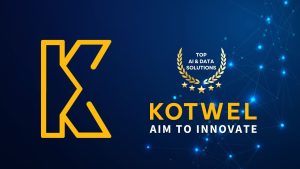In artificial intelligence (AI), data labeling has emerged as a critical process, and it's creating significant employment opportunities across various demographics. This practice involves annotating data—like images, text, or audio—so AI systems can learn from it. Here’s a look at how this often-overlooked aspect of AI development is not only pivotal for technological advancements but also for generating accessible job opportunities globally.
The Importance of Data Labeling in AI
Data labeling is the foundation of machine learning models. It involves manually annotating data to train AI systems to recognize patterns and make decisions. This process is crucial because the quality and quantity of labeled data directly influence the performance of AI models. As AI applications spread across industries—from healthcare diagnosing diseases to autonomous vehicles navigating city streets—the demand for accurately labeled data skyrockets.
Expanding Job Opportunities
1. Accessibility of Data Labeling Jobs
Data labeling jobs are uniquely accessible. They typically require no specific academic background or technical skills, opening up opportunities for a broad audience. People from non-technical fields can easily transition into the tech industry through these roles, gaining experience that could lead to more technical positions in the future.
2. Work Flexibility
Many data labeling tasks can be performed remotely, providing flexible work options for individuals who need or prefer to work from home. This flexibility is particularly beneficial for stay-at-home parents, students, or individuals in regions with fewer job opportunities.
3. Training and Skill Development
For many, data labeling jobs serve as an entry point into the tech world. These roles often come with on-the-job training that helps workers acquire new skills, such as basic data handling, use of labeling tools, and an understanding of AI workflows. Over time, this can lead to career advancement in more specialized AI roles, such as quality assurance for data sets or even junior data analysis positions.
4. Economic Impact on Developing Regions
Data labeling has a significant impact on economies, especially in developing countries where tech job opportunities may be limited. Companies often outsource data labeling tasks to countries with lower labor costs, which creates jobs and injects money into these economies. Moreover, these roles can pay above the average salary in many regions, providing economic stability for many families.
5. Promoting Diversity in AI
By employing a diverse group of people to label data, AI models can benefit from varied perspectives that reduce bias in AI applications. This diversity in data labeling helps ensure that AI technologies perform fairly and effectively across different demographics and situations.
Challenges & Considerations
While data labeling offers numerous benefits, there are challenges. The repetitiveness and sometimes monotonous nature of the work can lead to job dissatisfaction. Moreover, as AI gets smarter, the need for human data labelers could decrease, potentially limiting long-term job security. Addressing these issues involves improving working conditions, providing clear paths for career progression, and continually adapting training programs to meet future technological needs.
Data labeling is not just a crucial task in AI development; it's a gateway to tech for many worldwide. It offers flexible, inclusive employment opportunities that can lead to career growth and economic benefits, especially in underserved regions. As AI continues to integrate into every aspect of our lives, the role of human input in shaping its future remains undeniably important, making data labeling a field worth watching for economic, technological, and social development.
Shape the Future of AI with Us at Kotwel
At Kotwel, we foster a sense of purpose in our team by underscoring the significance of their contributions to the AI industry. Our collaborative and inclusive culture ensures that every data annotator feels valued and plays an integral part in our mission. We actively seek your input and feedback to continuously refine our processes and boost efficiency. As we strive to set new industry standards, we create a respectful and appreciative environment for our annotators. We invite you to join Kotwel and be part of a community that celebrates your efforts. While these positions are currently limited, we are dedicated to growth and creating more opportunities for passionate individuals in the near future. Join us at Kotwel and help shape the future of AI.
Kotwel is a reliable data service provider, offering custom AI solutions and high-quality AI training data for companies worldwide. Data services at Kotwel include data collection, data labeling (data annotation) and data validation that help get more out of your algorithms by generating, labeling and validating unique and high-quality training data, specifically tailored to your needs.
Frequently Asked Questions
You might be interested in:
In Computer Vision, image segmentation is a transformative technique that empowers machines to dissect visual data with unparalleled precision. This method plays a pivotal role in enabling machines to distinguish and understand various objects within an image, paving the way for advanced applications across […]
Read MoreThe accuracy and precision of data labeling play a pivotal role in shaping the success of Artificial Intelligence and Machine Learning models. When considering outsourcing AI data labeling, Kotwel emerges as the ideal partner, offering a multitude of compelling reasons to choose us for […]
Read MoreData labeling (commonly known as data annotation) is a critical process in the field of machine learning and artificial intelligence. As the demand for data labeling increases, organizations face the dilemma of choosing between building an in-house team or outsourcing this critical task to […]
Read More




